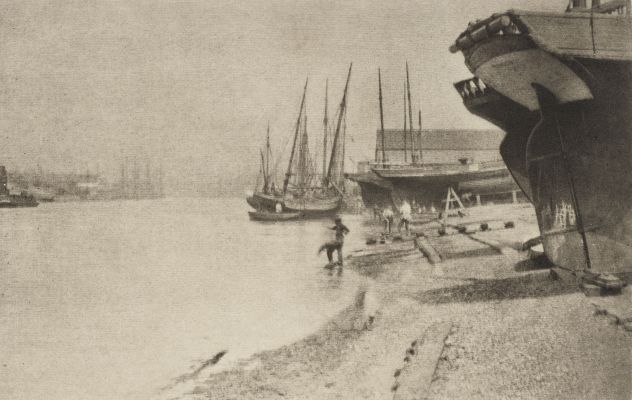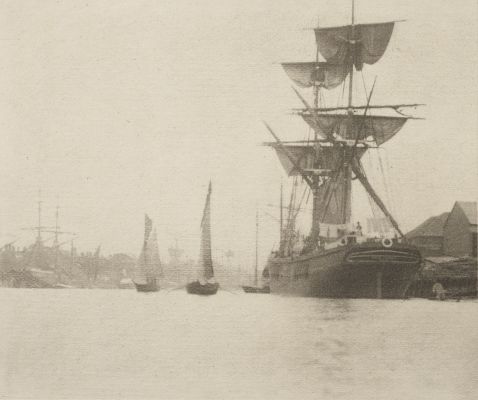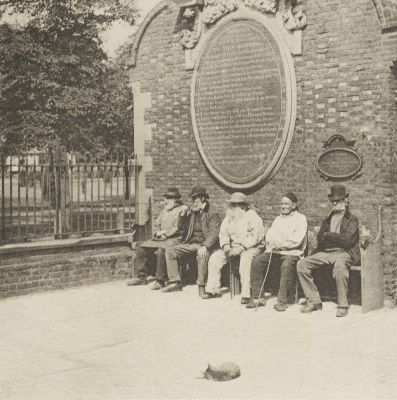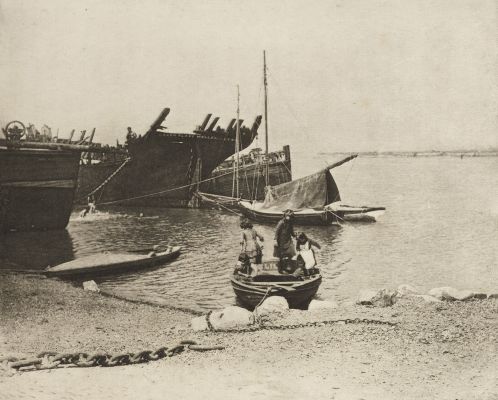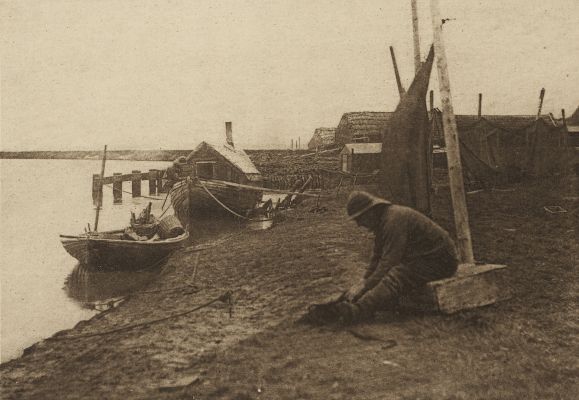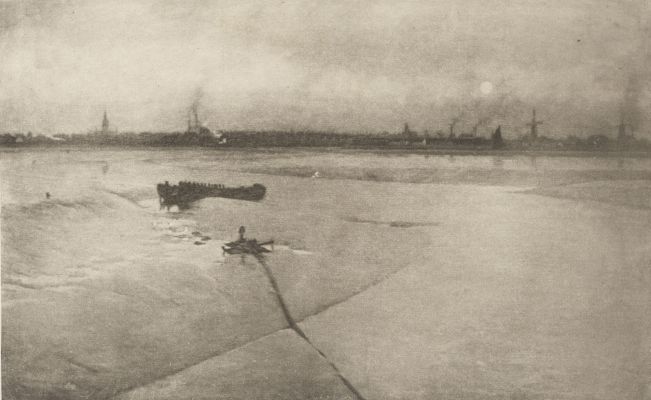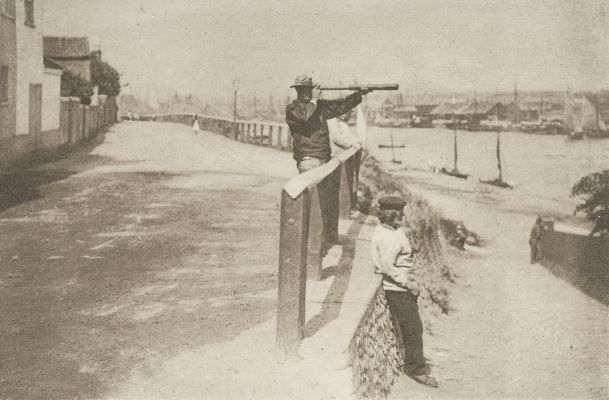
Title
Toil and GrimeArtist
Emerson, Peter Henry (British, 1856-1936)Key FigurePublication
Wild Life on a Tidal WaterDate
1890Process
PhotogravureAtelier
W. L. Colls and Alfred DawsonImage Size
20.1 x 9.3 cm
This book marked an important shift in Emerson’s literary style and visual theories. He was no longer an objective observer of natural history (although of course, birds and fish are everywhere). Rather, Wild Life on a Tidal Water has the air of a diary or reportage with Emerson as the subjective narrator and a character in the story. Emerson’s prose is simple but atmospheric while the photographs rendered as photo-etchings by Walter Colls take us much deeper into a world that would disappear in a few decades. Emerson was one of the earliest advocates of the view that photography should be seen as a pictorial art and these images, like the best paintings, invite us into the world being depicted.
The Wild Life photographs were made in the summer of 1887 from Goodall’s houseboat at Breydon Water on the edge of the Norfolk Broads. It was just over a year since Emerson and Goodall had completed their series Life and Landscape on the Norfolk Broads yet there is a distinct shift in approach, as carefully composed scenes of rural people give way to a largely unpopulated world of waterways and old ships. The images are reminiscent of Whistler’s Thames etchings, which were familiar to Goodall through the New English Art Club.
The photogravures in Wild Life on a Tidal Water are the result of Emerson’s appreciation of the process for book illustration providing a perfect complement to typography. Emerson’s naturalistic aesthetic led him, however, to denounce any kind of corrective handwork in the photogravure process. Through photogravure, these images begin to accentuate the subjectivity of vision and optical effects of weather and atmosphere in the landscape. Emerson personally approved the 31 plates etched by Colls before each were bound into the book. The deluxe edition was limited to one hundred copies; the ordinary edition was limited to three hundred copies but Emerson later wrote that only 300 total were ever printed. (the ordinary edition in blue cloth). A three page preface discusses the production of the book.
Reproduced / Exhibited
Haworth-Booth, Mark. The Golden Age of British Photography, 1839-1900: Photographs from the Victoria and Albert Museum, London [and Others]. New York: Aperture, 1984 p. 160
Newhall, Nancy. P. H. Emerson: The Fight for Photography As a Fine Art. New York: Aperture, 1976. p. 231
References
Newhall, Nancy. P. H. Emerson: The Fight for Photography As a Fine Art. New York: Aperture, 1976. p. 117
R. S. Kahan & J. B. Colson, "Peter Henry Emerson/’ Library Chronicle of the Univ. of Texas at Austin, (Sept 1972), pp. 67-81.
Turner & Wood, P. H. Emerson and Middleton
Taylor J. The Old Order and the New : P.H. Emerson and Photography 1885-1895. Munich: Prestel; 2006.
Foster, Sheila J, Manfred Heiting, and Rachel Stuhlman. Imagining Paradise: The Richard and Ronay Menschel Library at George Eastman House, Rochester. Göttingen: Steidl, 2007
Anninger A Mellby J Alexander V Horblit HD Houghton Library. Salts of Silver Toned with Gold : The Harrison D. Horblit Collection of Early Photography. Cambridge Massachusetts Seattle: Houghton Library Harvard University ; Distributed by the University of Washington Press; 1999.
